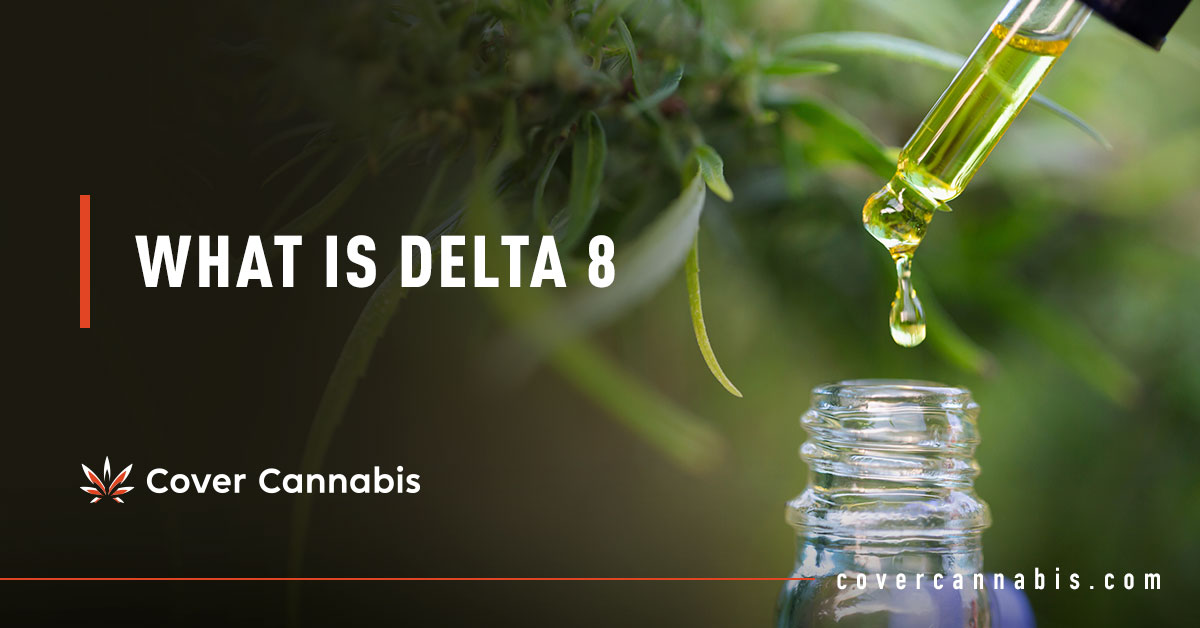


Delta-8 THC is a cannabinoid found naturally in hemp and cannabis plants. It has gained popularity due to its similarity to Delta-9 THC, the primary psychoactive compound in cannabis that produces a high. According to the National Cancer Institute, Delta-8 THC is:
“An analogue of tetrahydrocannabinol (THC) with antiemetic, anxiolytic, appetite-stimulating, analgesic, and neuroprotective properties. Delta-8-tetrahydrocannabinol (Delta-8-THC) binds to the cannabinoid G-protein coupled receptor CB1, located in the central nervous system; CB1 receptor activation inhibits adenyl cyclase, increases mitogen-activated protein kinase activities, modulates several potassium channel conductance, and inhibits N- and P/Q-type Ca2+ channels. This agent exhibits a lower psychotropic potency than Delta-9-Tetrahydrocannabinol (Delta-9-THC), the primary form of THC found in cannabis” (source: National Cancer Institute).

Delta-8 THC’s popularity surged in recent years as consumers sought alternatives to Delta-9 THC. Its lower psychotropic potency and purported therapeutic benefits made it an attractive option for those looking for a milder high with potential health benefits. However, the lack of FDA evaluation and approval for Delta-8 products raises safety concerns. These products should always be kept out of reach of children and pets due to potential health risks (source: FDA).
Even though Delta-8 THC is less potent than Delta-9, it is included on the DEA’s list of controlled substances under the “tetrahydrocannabinols” category, classifying it as a Schedule I drug. The Agriculture Improvement Act of 2018 (Farm Bill) did not affect the control status of synthetically derived tetrahydrocannabinols, making Delta-8 illegal at the federal level. The Federal Analogue Act treats substances with similar chemical structures and effects as Schedule I controlled substances if intended for human consumption (source: DEA).
Many states have explicitly banned Delta-8 THC products, often due to an increase in hospitalization cases linked to these products. States consider Delta-8 a synthetic form of THC, thus falling under the Controlled Substance Act’s prohibition. This patchwork of state laws creates confusion and highlights the need for clear regulations and safety standards (source: NORML).
Delta-8 THC’s legal status and safety are controversial due to its classification as a controlled substance analogue and the potential health risks. The lack of FDA evaluation means there is no assurance of safety or efficacy, leading to concerns about its impact on public health. Furthermore, its synthetic derivation complicates its legal standing under federal and state laws (source: FDA).
Consumers, especially those with children and pets, should exercise caution with Delta-8 THC products. Businesses in the cannabis industry must stay informed about the evolving legal landscape and ensure compliance with federal and state regulations. Consulting with legal and insurance experts can help navigate these complexities (source: Cover Cannabis).

To manage risks associated with Delta-8 THC, cannabis businesses should:
For specialized insurance solutions and expert advice, contact Cover Cannabis. They offer tailored insurance policies to help cannabis businesses navigate the unique challenges of the industry.
Delta-8 THC remains a contentious topic within the cannabis industry due to its legal ambiguity and potential health risks. As regulations evolve, it is crucial for consumers and businesses to stay informed and take appropriate measures to ensure safety and compliance. For more information on cannabis and how to insure your cannabis business, reach out to Cover Cannabis for expert guidance.